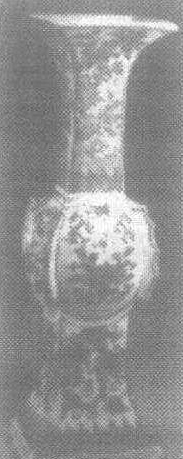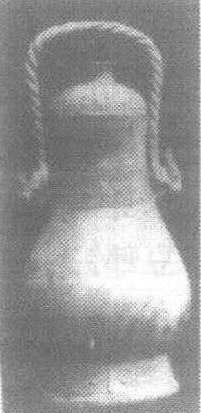卣
古代盛酒礼器。亦作为明器用于丧葬。《诗经·大雅·江汉》: “厘尔圭瓒,秬鬯一卣。” 毛传: “卣,器也。”《译雅·尔器》: “彝,卣罍,器也。” 李巡注: “卣,鬯之器也。” 《说文解字》没有收卣字。今存古青铜器中卣较多,器形: 椭圆口,深腹,圈足,有盖,有提梁。《左传·僖公二十八年》载城濮之战晋打败楚后,“(周王)策命晋侯为侯伯,赐之……秬鬯一卣。”

明青花觚

西周卣
卣
酒器。青铜制。椭圆口、深腹、圈足、有盖和提梁。外形变化较多。礼器,盛酒以灌降神。商至西周初盛行。
| 词条 | 卣 |
| 类别 | 中文百科知识 |
| 释义 | 卣古代盛酒礼器。亦作为明器用于丧葬。《诗经·大雅·江汉》: “厘尔圭瓒,秬鬯一卣。” 毛传: “卣,器也。”《译雅·尔器》: “彝,卣罍,器也。” 李巡注: “卣,鬯之器也。” 《说文解字》没有收卣字。今存古青铜器中卣较多,器形: 椭圆口,深腹,圈足,有盖,有提梁。《左传·僖公二十八年》载城濮之战晋打败楚后,“(周王)策命晋侯为侯伯,赐之……秬鬯一卣。”
明青花觚
西周卣 卣酒器。青铜制。椭圆口、深腹、圈足、有盖和提梁。外形变化较多。礼器,盛酒以灌降神。商至西周初盛行。 |
| 随便看 |
开放百科全书收录579518条英语、德语、日语等多语种百科知识,基本涵盖了大多数领域的百科知识,是一部内容自由、开放的电子版国际百科全书。